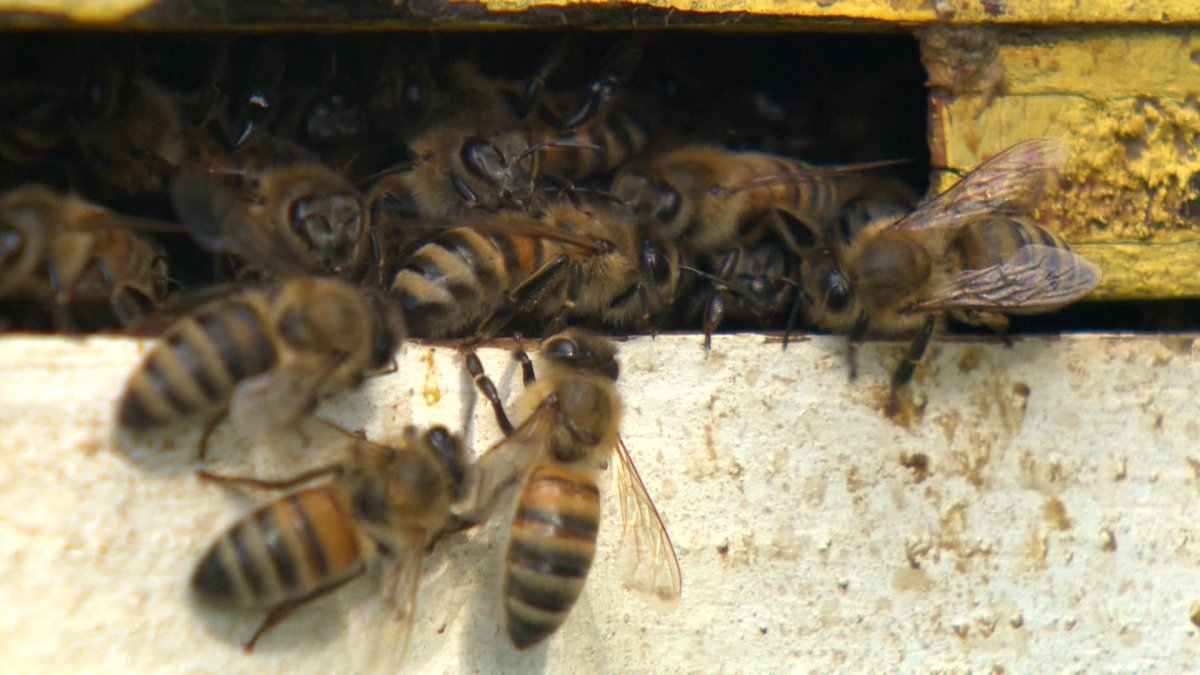A former University of Saskatchewan student conducted a study that shows insecticides impair the ability of honeybees to navigate.

Dr. Rachel Parkinson began this research in 2019 at the Marine Biological Laboratory in Massachusetts.
After exposing bees to insecticides and using a bee-sized treadmill with screens showing a real life environment, they could track the bee’s walking path and analyze the results.
“The significance of the research is that this study shows for the first time that the ability of bees to encode and respond to visual information is impaired by insecticides. Bees use the same type of visual information that we tested in walking bees during flight to stabilize themselves and navigate,” said Parkinson. “The next step will be to test whether flying bees experience the same impairments.”
Dr. Parkinson’s worry is the negative effects insecticides have on bees and how it could impact their foraging, navigation, and ability to pollinate.
“What we really need to do is try to find compounds that are going to be as safe as possible in the environment and in-order to do that, we really need to zero in on what these subtle sublethal effects are,” said Dr. Rachel Parkinson, University of Oxford Scientist.
Parkinson wants to understand these effects to create a better chance of survival for insects.
“With a better understanding of these effects comes a better chance of survival for these beneficial insects,” said Dr. Jack Gray, University of Saskatchewan Biology Professor.


Comments